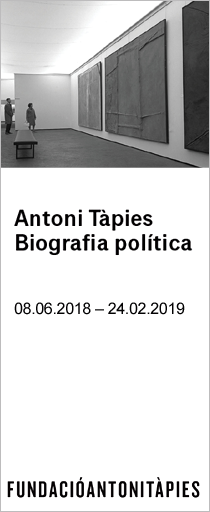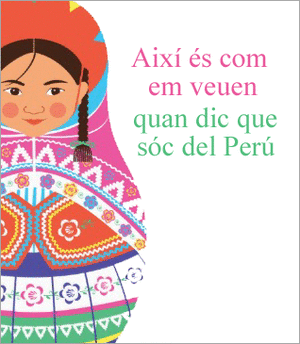
Catalonia moves to a vote
by Artur Mas, President of Catalonia | New Europe
Catalonia's Government and opposition parties, as mandated by our voters, have together decided to hold a popular vote on self-determination on 9 November 2014. Catalans will be asked a two-part question: "Do you want Catalonia to be a state? If so, do you want Catalonia to be an independent state?" But why does Catalonia need to take such a step at this time?
Catalonia is an ancient European nation, bordering the Pyrenees and the Mediterranean Sea. Our origins can be found in the Carolingian Empire a thousand years ago and, ever since, the small country of Catalonia has been at the junction of two great regional powers, a meeting place for different peoples, a bridge between Europe and the Mediterranean. Our language, Catalan, stretches beyond the administrative borders of Catalonia and is spoken by 9 million Europeans. As a people, we Catalans have always rooted our identity in culture and international openness. Barcelona, our capital, is a vibrant Mediterranean metropolis, a major destination for foreign direct investment, a cradle of Gothic and Modernist architecture and a magnet for many of Europe's artistic movements of the 19th, 20th and 21st centuries.
Our small nation lost its freedom in 1714 but has kept its identity alive despite dictatorships and large-scale cultural repression. Spain's return to democracy in 1978 allowed for recovering some of our autonomy. However, the Spanish state and governments of all parties constantly try to centralise and to build a homogenous, Hispanic country. This has convinced many Catalans that only the right of self-determination can guarantee their political, economic and cultural survival.
From a legal perspective, in 2010 the Spanish Constitutional Court suppressed several fundamental aspects of the Statute of Autonomy of Catalonia, the basic law which guarantees our self-government and which was revised in 2006 after an agreement between the Parliament of Catalonia and the Parliament of Spain, as well as a referendum held in Catalonia. Economically, the Government of Catalonia has been the most efficient in implementing severe austerity policies that have helped reduce the Spanish budget deficit more than any other region. In spite of the severe economic crisis across Europe, Catalonia has continued to innovate in technology, and attract new foreign investment. Culturally speaking, a recent quote from the Spanish Minister of Culture and Education clearly illustrates the agenda of the central state: "it is in our interest to hispanicise Catalan children".
Our self-determination process has been led by our vibrant civil society with massive grassroots support across Catalonia as evidenced by the 1.5 million citizens who marched through Barcelona on 11 September 2012, our national day. Again on 11 September 2013, following the example of the Baltic Way of 1989, which opened the door to recovering the independence of the three Baltic Republics, a 400 km-long human chain was organised on 11 September - the Catalan national day - across Catalonia from the French border in the north to our southern limits. Inspired by the civic example of the Baltic peoples, the Catalans called for their right to freely decide the future of their people, showing Madrid – and the world - that Catalonia will not settle for anything short of a self-determination referendum, just like the one negotiated by the UK and Scottish governments.
That is why we, Catalonia's political leaders, have decided to move to the next stage – for our people to freely choose their own future in November. In twenty-first century Europe, we solve these disputes peacefully and democratically, with ballot boxes and votes. Madrid should abide by its professed democratic principles and allow the referendum our people desire.
Let us vote, we say. Let us vote, we ask. Let us vote, we demand.
by Artur Mas, President of Catalonia | New Europe
Catalonia's Government and opposition parties, as mandated by our voters, have together decided to hold a popular vote on self-determination on 9 November 2014. Catalans will be asked a two-part question: "Do you want Catalonia to be a state? If so, do you want Catalonia to be an independent state?" But why does Catalonia need to take such a step at this time?
Catalonia is an ancient European nation, bordering the Pyrenees and the Mediterranean Sea. Our origins can be found in the Carolingian Empire a thousand years ago and, ever since, the small country of Catalonia has been at the junction of two great regional powers, a meeting place for different peoples, a bridge between Europe and the Mediterranean. Our language, Catalan, stretches beyond the administrative borders of Catalonia and is spoken by 9 million Europeans. As a people, we Catalans have always rooted our identity in culture and international openness. Barcelona, our capital, is a vibrant Mediterranean metropolis, a major destination for foreign direct investment, a cradle of Gothic and Modernist architecture and a magnet for many of Europe's artistic movements of the 19th, 20th and 21st centuries.
Our small nation lost its freedom in 1714 but has kept its identity alive despite dictatorships and large-scale cultural repression. Spain's return to democracy in 1978 allowed for recovering some of our autonomy. However, the Spanish state and governments of all parties constantly try to centralise and to build a homogenous, Hispanic country. This has convinced many Catalans that only the right of self-determination can guarantee their political, economic and cultural survival.
From a legal perspective, in 2010 the Spanish Constitutional Court suppressed several fundamental aspects of the Statute of Autonomy of Catalonia, the basic law which guarantees our self-government and which was revised in 2006 after an agreement between the Parliament of Catalonia and the Parliament of Spain, as well as a referendum held in Catalonia. Economically, the Government of Catalonia has been the most efficient in implementing severe austerity policies that have helped reduce the Spanish budget deficit more than any other region. In spite of the severe economic crisis across Europe, Catalonia has continued to innovate in technology, and attract new foreign investment. Culturally speaking, a recent quote from the Spanish Minister of Culture and Education clearly illustrates the agenda of the central state: "it is in our interest to hispanicise Catalan children".
Our self-determination process has been led by our vibrant civil society with massive grassroots support across Catalonia as evidenced by the 1.5 million citizens who marched through Barcelona on 11 September 2012, our national day. Again on 11 September 2013, following the example of the Baltic Way of 1989, which opened the door to recovering the independence of the three Baltic Republics, a 400 km-long human chain was organised on 11 September - the Catalan national day - across Catalonia from the French border in the north to our southern limits. Inspired by the civic example of the Baltic peoples, the Catalans called for their right to freely decide the future of their people, showing Madrid – and the world - that Catalonia will not settle for anything short of a self-determination referendum, just like the one negotiated by the UK and Scottish governments.
That is why we, Catalonia's political leaders, have decided to move to the next stage – for our people to freely choose their own future in November. In twenty-first century Europe, we solve these disputes peacefully and democratically, with ballot boxes and votes. Madrid should abide by its professed democratic principles and allow the referendum our people desire.
Let us vote, we say. Let us vote, we ask. Let us vote, we demand.









0 comentaris:
Publica un comentari a l'entrada